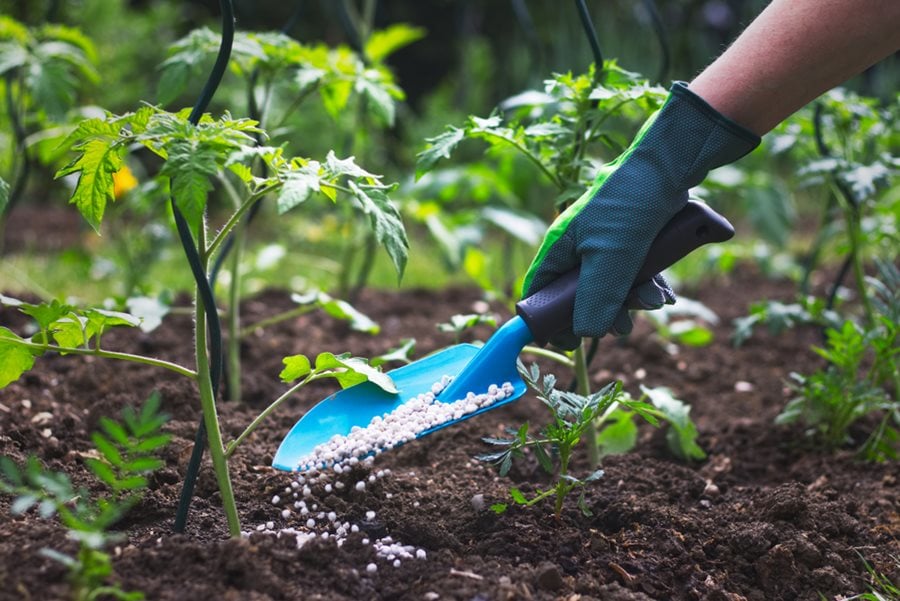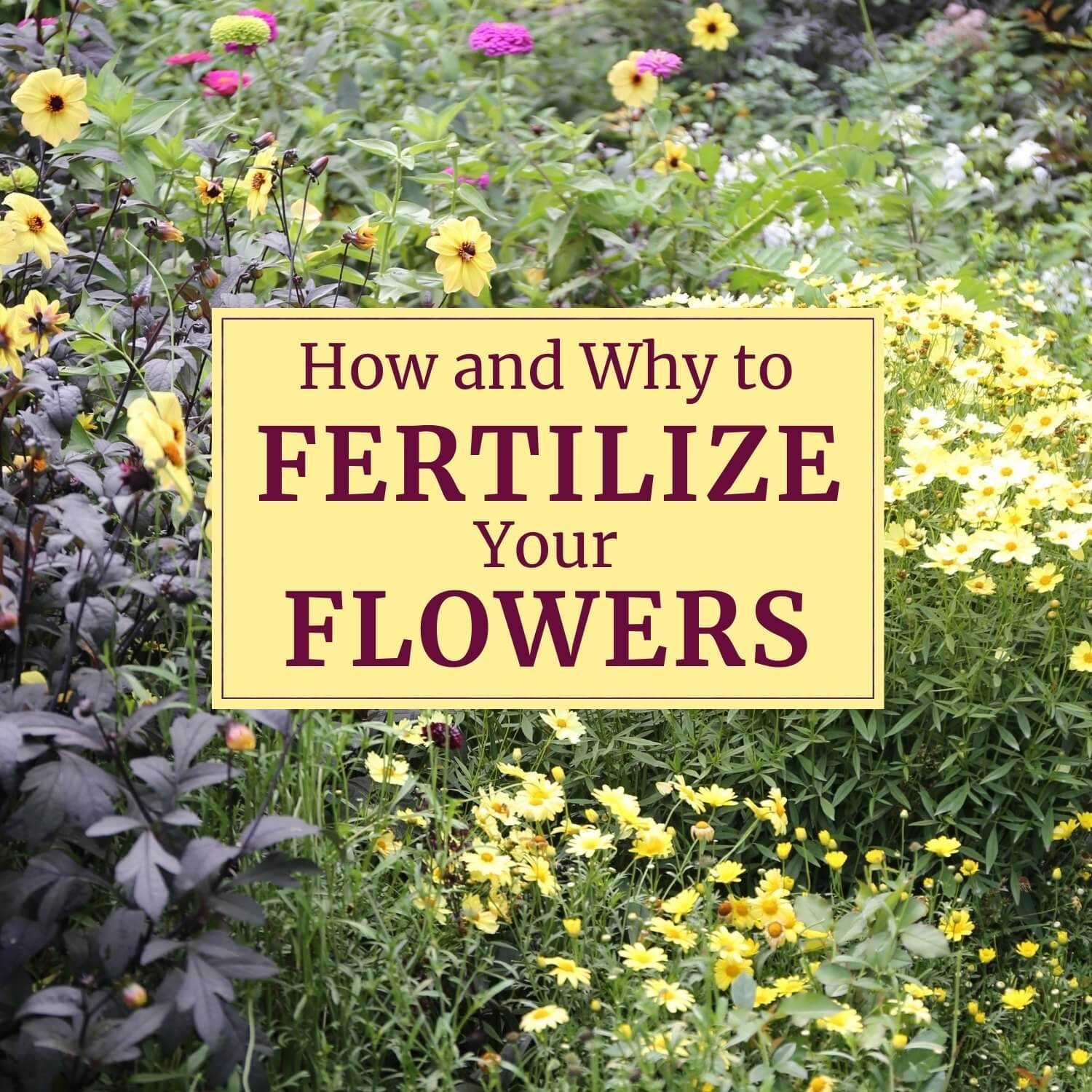When and How Often to Fertilize Flower Gardens: A Complete Guide. Discover The best times & frequency To fertilize your flower gardens with our comprehensive guide. Learn when & how often To nourish your blooms for a thriving & vibrant garden. Say goodbye To confusion & hello To beautiful flowers!
When and How Often to Fertilize Flower Gardens
Understanding The Importance of Fertilizing Flower Gardens
Fertilizing your flower gardens is crucial To ensure healthy & vibrant plants. Flower fertilizers provide essential nutrients that your flowers need for proper growth & development. These nutrients include nitrogen, phosphorus, & potassium, as well as trace elements like iron, magnesium, & calcium.
By fertilizing your flower gardens, you can significantly improve The overall health & vigor of your plants. This, in turn, leads To more robust blooms, enhanced color, & increased resistance To diseases & pests. However, knowing when & how often To fertilize is crucial for achieving optimum results.
Fertilizing Newly Planted Flower Gardens
When it comes To newly planted flower gardens, it’s essential To establish a good foundation by providing The right nutrients from The start. Before planting, it’s a good idea To amend The soil with organic matter & slow-release fertilizers. This helps create a favorable environment for root development & overall plant growth.
After planting, it’s generally recommended To wait for about a month before applying any additional fertilizer. This gives The plants enough time To settle in & establish their root systems. Once The initial month has passed, begin by applying a balanced, water-soluble flower fertilizer according To The package instructions.
This initial application will provide The necessary nutrients To support healthy growth. As The plants continue To establish & grow, monitor their progress & adjust The fertilization schedule accordingly.
Regular Fertilization Schedule for Established Flower Gardens
Once your flower gardens are established, it’s important To maintain a regular fertilization schedule To ensure continued growth & blooming. However, The frequency & type of fertilizer can vary depending on The specific needs of your plants.
A general guideline for fertilizing established flower gardens is To apply a balanced, slow-release granular fertilizer in early spring & again in mid-summer. This provides a steady supply of nutrients throughout The growing season. Additionally, you can supplement with occasional applications of liquid flower fertilizers every 4-6 weeks To boost growth & flowering.
It’s essential To read The instructions on The fertilizer package & follow The recommended application rates. Over-fertilizing can lead To nutrient imbalances, burn The roots, & harm your plants. Always water your flower gardens thoroughly after applying fertilizer To ensure proper absorption.
Factors Affecting Fertilization Frequency
While The general fertilization guidelines mentioned above are a good starting point, several factors can influence how often you need To fertilize your flower gardens. These factors include The type of soil, weather conditions, plant species, & overall plant health.
Sandy soils tend To drain more quickly & may require more frequent fertilization, while clay soils retain moisture & nutrients longer, potentially reducing The need for frequent fertilization. Similarly, during periods of heavy rainfall or excessive watering, plants may require additional nutrients To compensate for leaching.
It’s also important To consider The specific nutrient requirements of different plant species. Some plants, like roses or flowering annuals, may benefit from regular feeding every 2-3 weeks, while others, such as native wildflowers, may require less frequent fertilization.
Additionally, regular observation of your plants can help determine their overall health & nutrient needs. If you notice signs of nutrient deficiencies, such as yellowing leaves or stunted growth, it may be necessary To adjust your fertilization frequency or use specialized fertilizers To address these deficiencies.
When & How Often To Fertilize Flower Gardens: A Complete Guide
Understanding The Importance of Fertilizing Flower Gardens
Flower gardens bring beauty & vibrancy To any outdoor space. To ensure that your flowers thrive & bloom abundantly, it is crucial To provide them with The necessary nutrients. Fertilizers play a vital role in supplying these essential nutrients, promoting healthy growth, & enhancing overall plant health.
The Best Time To Fertilize Flower Gardens
Determining The right time To fertilize your flower gardens depends on various factors such as The type of flowers, soil conditions, & regional climate. In general, early spring is an ideal time To fertilize, just before new growth begins. This allows The plants To receive The necessary nutrients To support their initial growth spurt.
Frequency of Fertilizing Flower Gardens
The frequency of fertilizing your flower gardens depends on The specific needs of The plants & The type of fertilizer you use. It is generally recommended To fertilize every 4-6 weeks during The growing season, which typically spans from spring To early fall. However, it is essential To monitor The plants’ response & adjust The fertilizing schedule accordingly.
Factors Affecting Fertilization Frequency
Soil Quality & Composition
The soil in your flower garden plays a significant role in determining how often you should fertilize. Conduct a soil test To assess its pH levels & nutrient content. This will help you identify any deficiencies & determine The appropriate fertilizer formulation.
Plant Types & Nutritional Requirements
Different flower species have varying nutritional needs. Some plants require more frequent fertilization To support their growth & blooming, while others may thrive with minimal fertilization. Research The specific nutritional requirements of The flowers in your garden To ensure optimal care.
Environmental Conditions
Factors such as temperature, humidity, & sunlight exposure can influence how often you should fertilize your flower gardens. Warmer climates with longer growing seasons may require more frequent fertilization, while cooler regions with shorter growing seasons may need fewer applications.
Choosing The Right Fertilizer
Nitrogen, Phosphorus, & Potassium (NPK)
Fertilizers contain different ratios of nitrogen (N), phosphorus (P), & potassium (K), which are represented by The NPK values on The product packaging. Nitrogen promotes leaf & stem growth, phosphorus supports root development & flower production, & potassium helps with overall plant health. Consider The specific needs of your flowers & choose a fertilizer with The appropriate NPK ratio.
Organic vs. Synthetic Fertilizers
Both organic & synthetic fertilizers have their advantages. Organic fertilizers release nutrients slowly, improving soil health over time. They are environmentally friendly & may promote beneficial microbial activity. Synthetic fertilizers, on The other hand, provide quick-release nutrients & allow for precise control of nutrient levels. Choose The type of fertilizer based on your gardening preferences & The specific needs of your flower garden.
Application Methods
Fertilizers can be applied in various forms, including granular, liquid, & slow-release pellets. Granular fertilizers are typically spread evenly across The soil surface & watered in, while liquid fertilizers are mixed with water & applied as a foliar spray or through irrigation systems. Slow-release pellets provide a steady supply of nutrients over an extended period. Consider The convenience & effectiveness of each application method before making a decision.
Comparing Different Fertilization Techniques
| Technique | Pros | Cons |
|---|---|---|
| Granular Fertilizer | ✅Easy To apply ✅Provides long-lasting nutrients |
❌May take time To dissolve & release nutrients ❌Risk of over-fertilization if not applied correctly |
| Liquid Fertilizer | ✅Quick absorption by plants ✅Allows for precise nutrient control |
❌Requires frequent applications ❌Potential for nutrient runoff if not applied properly |
| Slow-release Pellets | ✅Provides gradual nutrient release ✅Reduces The need for frequent applications |
❌Limited control over nutrient release timing ❌More expensive than other methods |
Experience with Fertilizing Flower Gardens
In my own experience with fertilizing flower gardens, I have found that regular & consistent fertilization leads To healthier & more vibrant plants. By following The appropriate fertilizing schedule & considering The specific needs of each type of flower, I have witnessed remarkable blooms & increased resilience against pests & diseases.
Fertilizing flower gardens is an ongoing process that requires attentive care & monitoring. By understanding The best timing, frequency, & techniques for fertilization, you can create a thriving garden filled with beautiful & healthy flowers. Remember To always refer To reliable sources, such as gardening experts & reputable online resources like Wards Nursery & Reddit’s Vegetable Gardening Community, for additional guidance & insights.
Now that you are equipped with The knowledge & understanding of when & how often To fertilize flower gardens, you can embark on a journey To create a vibrant & flourishing oasis of blooming flowers in your own backyard. Remember To always enjoy The process & take pride in The beauty you cultivate.

When should I fertilize my flower garden?
There is no one-size-fits-all answer To this question as it depends on The specific needs of your plants. In general, it is recommended To fertilize your flower garden in early spring before The growing season begins. You can also consider fertilizing again every 4-6 weeks throughout The growing season for optimal results.
How often should I fertilize my flower garden?
The frequency of fertilization depends on various factors, such as The type of flowers you are growing, The soil quality, & The specific fertilizer you are using. It is essential To follow The instructions provided on The fertilizer packaging. Over-fertilizing can be harmful, so it is better To under-fertilize & adjust as needed based on The appearance & health of your plants.
What is The best type of fertilizer for flower gardens?
Choosing The right fertilizer for your flower garden depends on The specific needs of your plants & The composition of your soil. Generally, a balanced fertilizer with equal parts nitrogen, phosphorus, & potassium (NPK) is suitable for most flower varieties. Additionally, organic fertilizers, such as compost or well-rotted manure, can enrich The soil & promote healthier plant growth.
How should I apply fertilizer To my flower garden?
To apply fertilizer correctly, start by reading The instructions on The fertilizer packaging. Avoid directly applying The fertilizer To The leaves or stems of your plants, as this can cause burns. Instead, spread The fertilizer evenly around The base of your plants, making sure To keep it a few inches away from The stems. Water thoroughly after fertilizing To ensure proper absorption.
Are there any organic alternatives To synthetic fertilizers?
Yes, there are several organic alternatives To synthetic fertilizers that can be beneficial for your flower garden. Compost, well-rotted manure, bone meal, fish emulsion, & seaweed extracts are all excellent organic options. These natural fertilizers provide essential nutrients To your plants while improving soil quality & promoting beneficial microbial activity.
Can I fertilize my flower garden too much?
Yes, over-fertilizing can be detrimental To your flower garden. It can cause nutrient imbalances, burn The roots, & result in weak or stunted growth. It is crucial To follow The recommended dosage & application instructions provided by The fertilizer manufacturer. Regularly monitor The health & appearance of your plants & adjust The fertilization frequency if necessary.
Should I fertilize annuals & perennials differently?
Yes, annuals & perennials have different growth habits & nutrient requirements, so their fertilization needs may vary. Annuals, which have a shorter lifespan, typically benefit from frequent fertilization throughout The growing season. Perennials, on The other hand, may require less frequent or lighter fertilization. It is advisable To research The specific needs of each plant species in your flower garden for optimal results.
Can I use leftover fertilizer from my vegetable garden in my flower garden?
Using leftover fertilizer from your vegetable garden in your flower garden is generally safe, as long as The nutrient requirements of your flowers align with The composition of The fertilizer. However, it is essential To ensure that The fertilizer does not contain any harmful chemicals or excessive amounts of nutrients that could harm your flowers. Always read The label & consult guidelines before using any fertilizer.

When it comes To fertilizing your flower gardens, timing & frequency are key. By understanding The needs of your plants & following some essential guidelines, you can ensure their health & vitality.
Remember To always start by testing your soil for nutrient deficiencies. This will help you determine The type & amount of fertilizer your flowers require. Additionally, consider using organic fertilizers, which provide long-term benefits & promote soil health.
In terms of timing, it’s crucial To fertilize your flower gardens at The right moments. For annual flowers, applying a starter fertilizer before planting & then using a slow-release fertilizer once they start growing will keep them nourished throughout The season. Perennial flowers generally benefit from a single fertilizer application in early spring, as it stimulates growth & enhances their overall development.
When it comes To frequency, moderation is key. Overfertilization can lead To excessive growth, weak plants, & environmental pollution. Following The recommended dosage on The fertilizer packaging or consulting a gardening expert can help you avoid these issues. Remember, it’s always better To underfertilize than To overfertilize.
Lastly, be sure To water your flower gardens appropriately after applying fertilizer. This will help The nutrients reach The root zone & be absorbed by The plants. Additionally, regular soil testing & observation of your plants’ growth can help you adjust your fertilization practices as needed.
Overall, fertilizing your flower gardens is an essential part of ensuring their health & beauty. By understanding The specific needs of your plants, timing your fertilizer applications correctly, & using fertilizers in moderation, you can create a vibrant & thriving garden that will be The envy of your neighbors. So go ahead, get your hands dirty, & discover The wonders that proper fertilization can bring To your flower garden.
